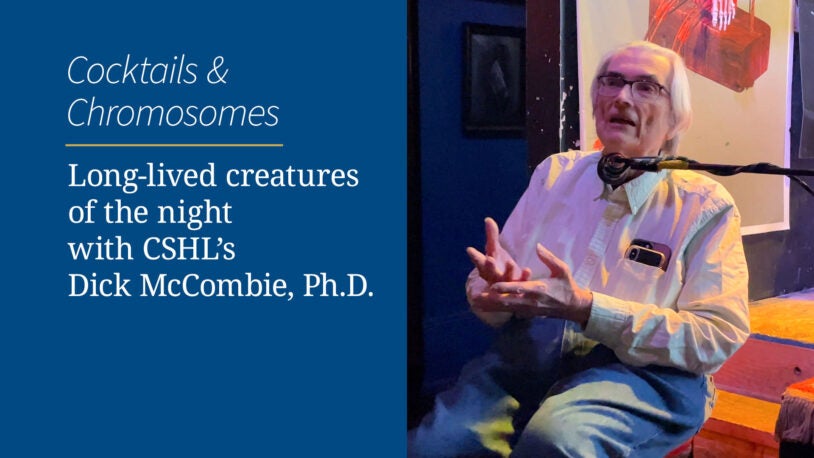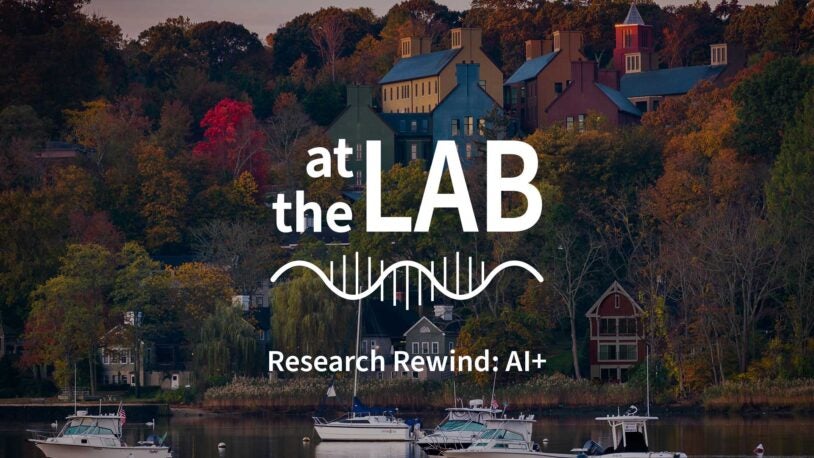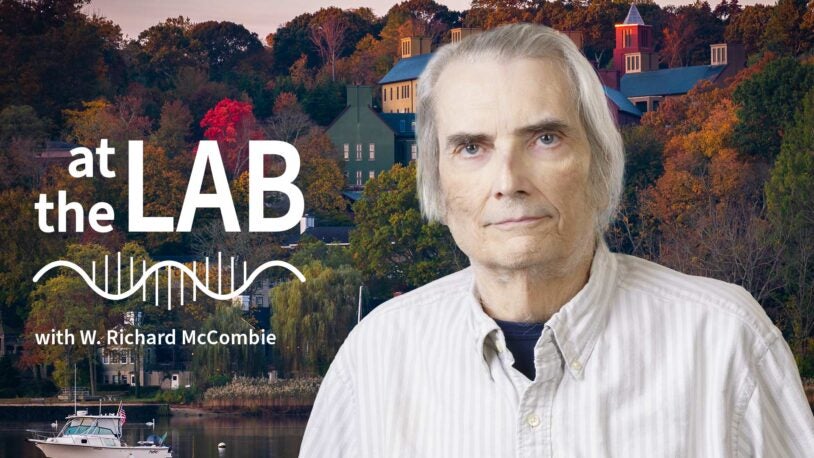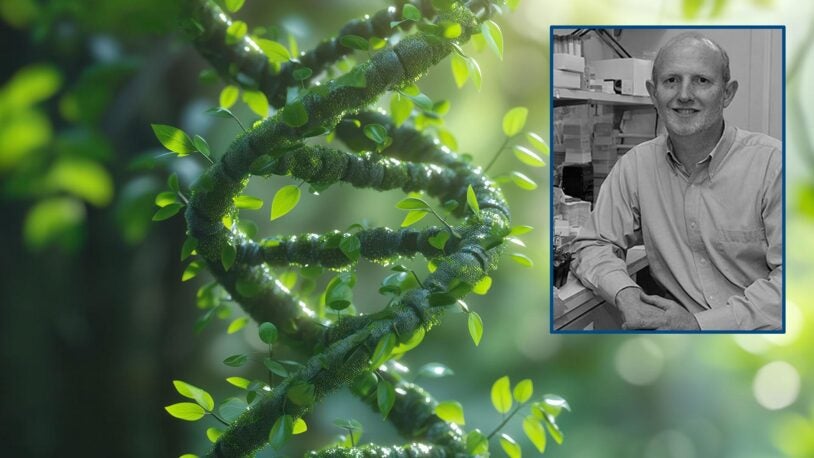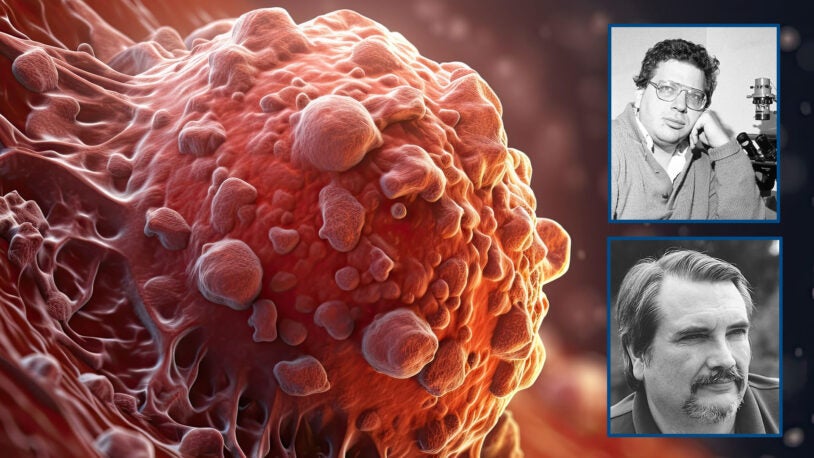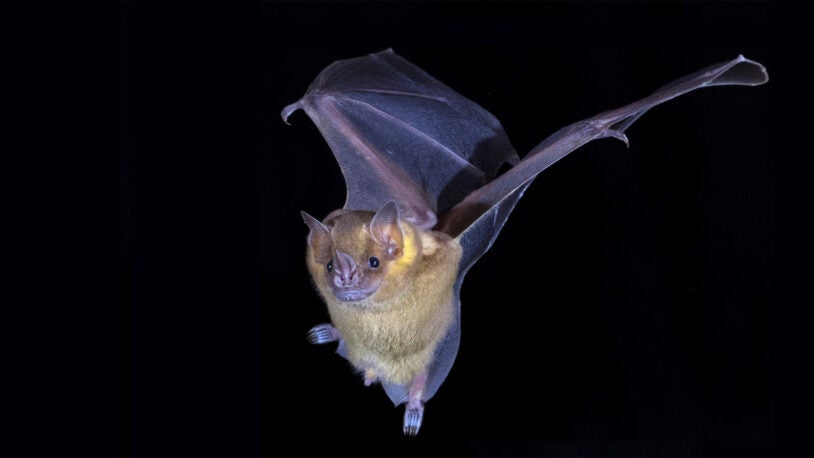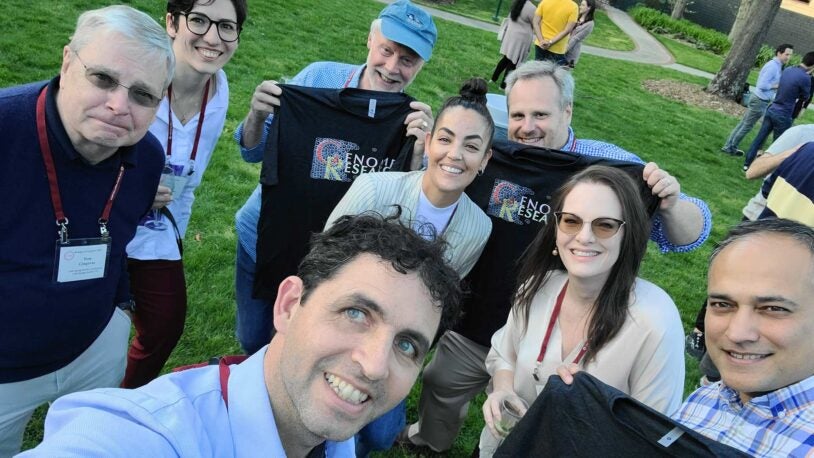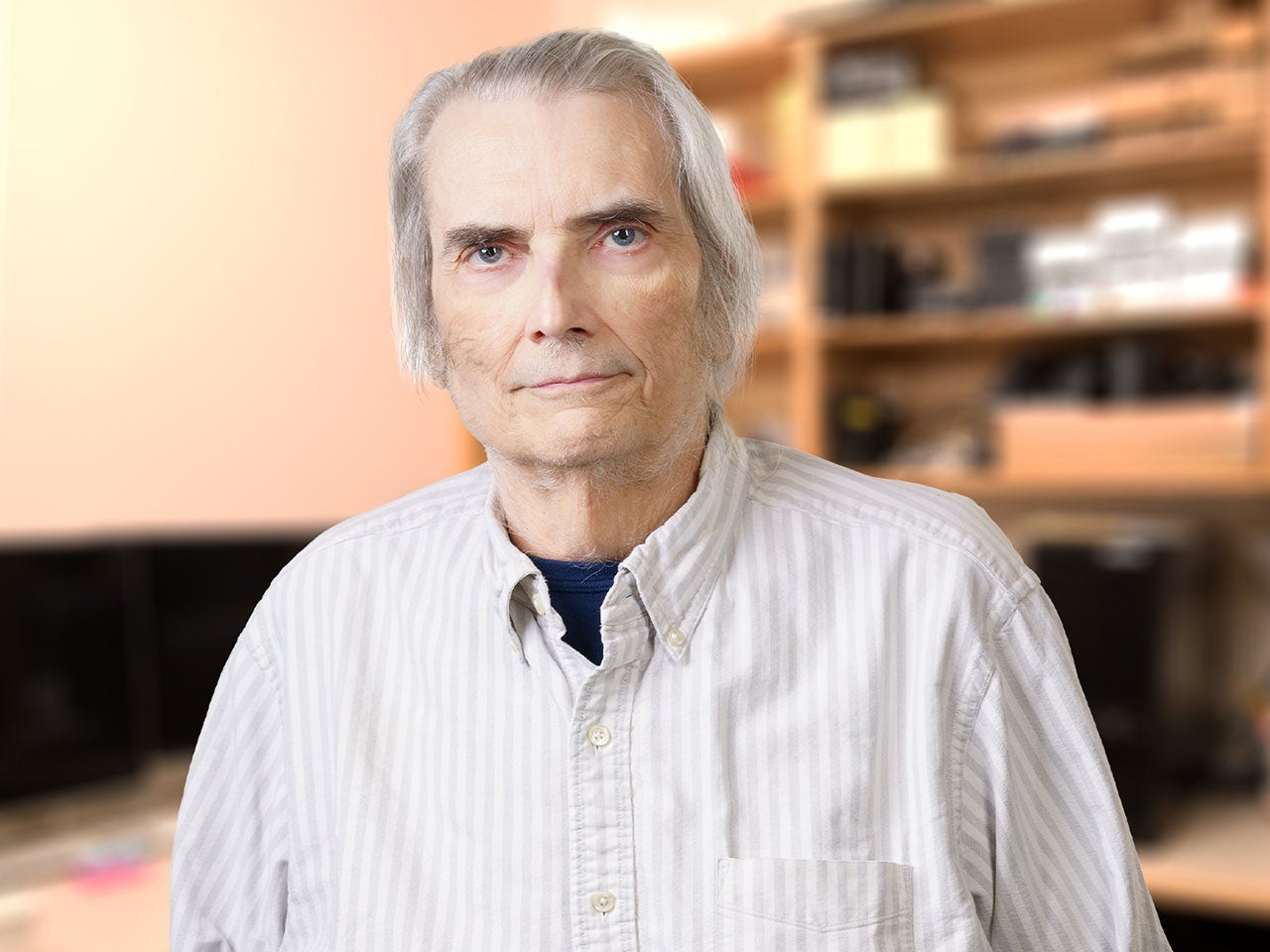
W. Richard McCombie
Professor
Davis Family Professor of Human Genetics
Cancer Center Member
Ph.D., University of Michigan, 1982
mccombie@cshl.edu | 516-422-4083
Over the last two decades, revolutionary improvements in DNA sequencing technology have made it faster, more accurate, and much cheaper. We are now able to sequence up to 10 trillion DNA letters in just one month. I harness these technological advancements to assemble genomes for a variety of organisms and probe the genetic basis of neurological disorders, including autism and schizophrenia, better understand cancer progression and understand the complex structures of the genomes of higher plants.
The insights of W. Richard McCombie and colleagues have led to the introduction and optimization of novel methods of high-throughput genome sequencing. His team has made it possible to catalog variation among individual organisms in a way that would have been unthinkable 10 years ago. They have brought online a new generation of Illumina sequencers and optimized their function to a level at which eight to 10 trillion DNA bases can be sequenced in a month. McCombie’s team has been involved in international efforts culminating in genome sequences for maize, rice, bread wheat—three of the world’s most important food crops. They have also had an important role in projects to sequence the flowering plant Arabidopsis thaliana (the first plant genome sequence), the fission yeast Schizosaccharomyces pombe, as well as the human genome and other important genomes. McCombie’s group is currently involved in several important projects to resequence genes in patient samples that are of special interest to human health, including DISC1 (a strong candidate gene for schizophrenia), looking for genetic variants implicated in bipolar illness and major recurrent depression. They are also looking for genes, that contribute to cancer progression using whole genome sequencing or a method called exome sequencing which they developed with Greg Hannon to look at mutations in the regions of the genome that code for proteins.
Cocktails & Chromosomes: Long-lived creatures of the night
November 19, 2024
Bat genes may hold the keys to aging, immunity, and cancer. Find out how, as we relive a special Halloween night event with CSHL’s Dick McCombie.
At the Lab Season 1 Research Rewind: AI+
October 29, 2024
This season’s final Research Rewind brings us from the realm of quantitative biology to neuroscience, genomics, and beyond.
At the Lab Episode 16: Bats!
July 23, 2024
Shriek if you must. Their remarkable genome might provide new insights into natural links between the immune system, aging, and cancer resistance.
From plant genomics to a bioscience revolution
March 25, 2024
CSHL played a lead role in mapping the first plant genome. Today, that breakthrough fuels a whole new understanding of life on Earth.
A quiz for the ages
January 29, 2024
Want to know the secret to a long life? So do CSHL scientists. Take this short quiz to see what they’ve found out about aging and longevity.
From cancer genetics to cancer treatments
January 18, 2024
One cancer gene, one cancer genome, two Cold Spring Harbor Laboratory discoveries that helped shape the face of modern cancer medicine.
Holy immunity! Bat genes key against COVID, cancer
October 16, 2023
Rapid evolution has streamlined bats’ immune systems. This may explain why they’re resistant to cancer and viruses like Ebola or COVID-19.
The evolution of autism research
May 25, 2023
The conversation around autism has evolved over the past two decades. So has CSHL research. This retrospective shows how we’ve helped move the needle.
CSHL professors on the cutting edge of scientific research
November 21, 2022
Four CSHL researchers were ranked among the world’s most cited in 2022.
President’s essay: Foundations for the future
May 25, 2022
Strategically designed to spark scientific exchange and inspiration, CSHL is a unique research and education environment for advancing science.
All Publications
Solanum pan-genetics reveals paralogues as contingencies in crop engineering
5 Mar 2025 | Nature
Benoit, Matthias; Jenike, Katharine; Satterlee, James; Ramakrishnan, Srividya; Gentile, Iacopo; Hendelman, Anat; Passalacqua, Michael; Suresh, Hamsini; Shohat, Hagai; Robitaille, Gina; Fitzgerald, Blaine; Alonge, Michael; Wang, Xingang; Santos, Ryan; He, Jia; Ou, Shujun; Golan, Hezi; Green, Yumi; Swartwood, Kerry; Karavolias, Nicholas; Sierra, Gina; Orejuela, Andres; Roda, Federico; Goodwin, Sara; McCombie, W; Kizito, Elizabeth; Gagnon, Edeline; Knapp, Sandra; Särkinen, Tiina; Frary, Amy; Gillis, Jesse; Van Eck, Joyce; Schatz, Michael; Lippman, Zachary;
MaizeCODE reveals bi-directionally expressed enhancers that harbor molecular signatures of maize domestication
30 Dec 2024 | Nature Communications | 15(1):10854
Cahn, Jonathan; Regulski, Michael; Lynn, Jason; Ernst, Evan; de Santis Alves, Cristiane; Ramakrishnan, Srividya; Chougule, Kapeel; Wei, Sharon; Lu, Zhenyuan; Xu, Xiaosa; Ramu, Umamaheswari; Drenkow, Jorg; Kramer, Melissa; Seetharam, Arun; Hufford, Matthew; McCombie, W; Ware, Doreen; Jackson, David; Schatz, Michael; Gingeras, Thomas; Martienssen, Robert;
Leveraging the power of long reads for targeted sequencing
20 Nov 2024 | Genome Research | 34(11):1701-1718
Iyer, Shruti; Goodwin, Sara; McCombie, William;
Gapless assembly of complete human and plant chromosomes using only nanopore sequencing
6 Nov 2024 | Genome Research
Koren, Sergey; Bao, Zhigui; Guarracino, Andrea; Ou, Shujun; Goodwin, Sara; Jenike, Katharine; Lucas, Julian; McNulty, Brandy; Park, Jimin; Rautiainen, Mikko; Rhie, Arang; Roelofs, Dick; Schneiders, Harrie; Vrijenhoek, Ilse; Nijbroek, Koen; Nordesjo, Olle; Nurk, Sergey; Vella, Mike; Lawrence, Katherine; Ware, Doreen; Schatz, Michael; Garrison, Erik; Huang, Sanwen; McCombie, William; Miga, Karen; Wittenberg, Alexander; Phillippy, Adam;
High-coverage nanopore sequencing of samples from the 1000 Genomes Project to build a comprehensive catalog of human genetic variation
2 Oct 2024 | Genome Research | :gr.279273.124
Gustafson, Jonas; Gibson, Sophia; Damaraju, Nikhita; Zalusky, Miranda; Hoekzema, Kendra; Twesigomwe, David; Yang, Lei; Snead, Anthony; Richmond, Phillip; De Coster, Wouter; Olson, Nathan; Guarracino, Andrea; Li, Qiuhui; Miller, Angela; Goffena, Joy; Anderson, Zachery; Storz, Sophie; Ward, Sydney; Sinha, Maisha; Gonzaga-Jauregui, Claudia; Clarke, Wayne; Basile, Anna; Corvelo, Andre; Reeves, Catherine; Helland, Adrienne; Musunuri, Rajeeva; Revsine, Mahler; Patterson, Karynne; Paschal, Cate; Zakarian, Christina; Goodwin, Sara; Jensen, Tanner; Robb, Esther; 1000 Genomes ONT Sequencing Consortium; University of Washington Center for Rare Disease Research (UW-CR; Genomics Research to Elucidate the Genetics of Rare Diseases (GR; McCombie, W; Sedlazeck, Fritz; Zook, Justin; Montgomery, Stephen; Garrison, Erik; Kolmogorov, Mikhail; Schatz, Michael; McLaughlin, Richard; Dashnow, Harriet; Zody, Michael; Loose, Matthew; Jain, Miten; Eichler, Evan; Miller, Danny;
Solanum pan-genomics and pan-genetics reveal paralogs as contingencies in crop engineering
14 Sep 2024 | bioRxiv
Benoit, Matthias; Jenike, Katharine; Satterlee, James; Ramakrishnan, Srividya; Gentile, Iacopo; Hendelman, Anat; Passalacqua, Michael; Suresh, Hamsini; Shohat, Hagai; Robitaille, Gina; Fitzgerald, Blaine; Alonge, Michael; Wang, Xingang; Santos, Ryan; He, Jia; Ou, Shujun; Golan, Hezi; Green, Yumi; Swartwood, Kerry; Sierra, Gina; Orejuela, Andres; Fornaguera, Federico; Goodwin, Sara; McCombie, William; Kizito, Elizabeth; Gagnon, Edeline; Knapp, Sandra; Sarkinen, Tiina; Frary, Amy; Gillis, Jesse; Van Eck, Joyce; Schatz, Michael; Lippman, Zachary;
Exploring the genetic and epigenetic underpinnings of early-onset cancers: Variant prioritization for long read whole genome sequencing from family cancer pedigrees
2 Jul 2024 | bioRxiv
Kramer, Melissa; Goodwin, Sara; Wappel, Robert; Borio, Matilde; Offit, Kenneth; Feldman, Darren; Stadler, Zsofia; McCombie, W;
Monozygotic twins discordant for schizophrenia differ in maturation and synaptic transmission
4 May 2024 | Molecular Psychiatry
Stern, Shani; Zhang, Lei; Wang, Meiyan; Wright, Rebecca; Rosh, Idan; Hussein, Yara; Stern, Tchelet; Choudhary, Ashwani; Tripathi, Utkarsh; Reed, Patrick; Sadis, Hagit; Nayak, Ritu; Shemen, Aviram; Agarwal, Karishma; Cordeiro, Diogo; Peles, David; Hang, Yuqing; Mendes, Ana; Baul, Tithi; Roth, Julien; Coorapati, Shashank; Boks, Marco; McCombie, W; Hulshoff Pol, Hilleke; Brennand, Kristen; Réthelyi, János; Kahn, René; Marchetto, Maria; Gage, Fred;
Gapless assembly of complete human and plant chromosomes using only nanopore sequencing
17 Mar 2024 | bioRxiv
Koren, Sergey; Bao, Zhigui; Guarracino, Andrea; Ou, Shujun; Goodwin, Sara; Jenike, Katharine; Lucas, Julian; McNulty, Brandy; Park, Jimin; Rautianinen, Mikko; Rhie, Arang; Roelofs, Dick; Schneiders, Harrie; Vrijenhoek, Ilse; Nijbroek, Koen; Ware, Doreen; Schatz, Michael; Garrison, Erik; Huang, Sanwen; McCombie, William; Miga, Karen; Wittenberg, Alexander; Phillippy, Adam;
Nanopore sequencing of 1000 Genomes Project samples to build a comprehensive catalog of human genetic variation
7 Mar 2024 | bioRxiv
Gustafson, Jonas; Gibson, Sophia; Damaraju, Nikhita; Zalusky, Miranda; Hoekzema, Kendra; Twesigomwe, David; Yang, Lei; Snead, Anthony; Richmond, Phillip; De Coster, Wouter; Olson, Nathan; Guarracino, Andrea; Li, Qiuhui; Miller, Angela; Goffena, Joy; Anderson, Zachery; Storz, Sophie; Ward, Sydney; Sinha, Maisha; Gonzaga-Jauregui, Claudia; Clarke, Wayne; Basile, Anna; Corvelo, Andre; Reeves, Catherine; Helland, Adrienne; Musunuri, Rajeeva; Revsine, Mahler; Patterson, Karynne; Paschal, Cate; Zakarian, Christina; Goodwin, Sara; Jensen, Tanner; Robb, Esther; 1000 Genomes ONT Sequencing Consortium; University of Washington Center for Rare Disease Research (UW-CR; Genomics Research to Elucidate the Genetics of Rare Diseases (GR; McCombie, W; Sedlazeck, Fritz; Zook, Justin; Montgomery, Stephen; Garrison, Erik; Kolmogorov, Mikhail; Schatz, Michael; McLaughlin, Richard; Dashnow, Harriet; Zody, Michael; Loose, Matthew; Jain, Miten; Eichler, Evan; Miller, Danny;
